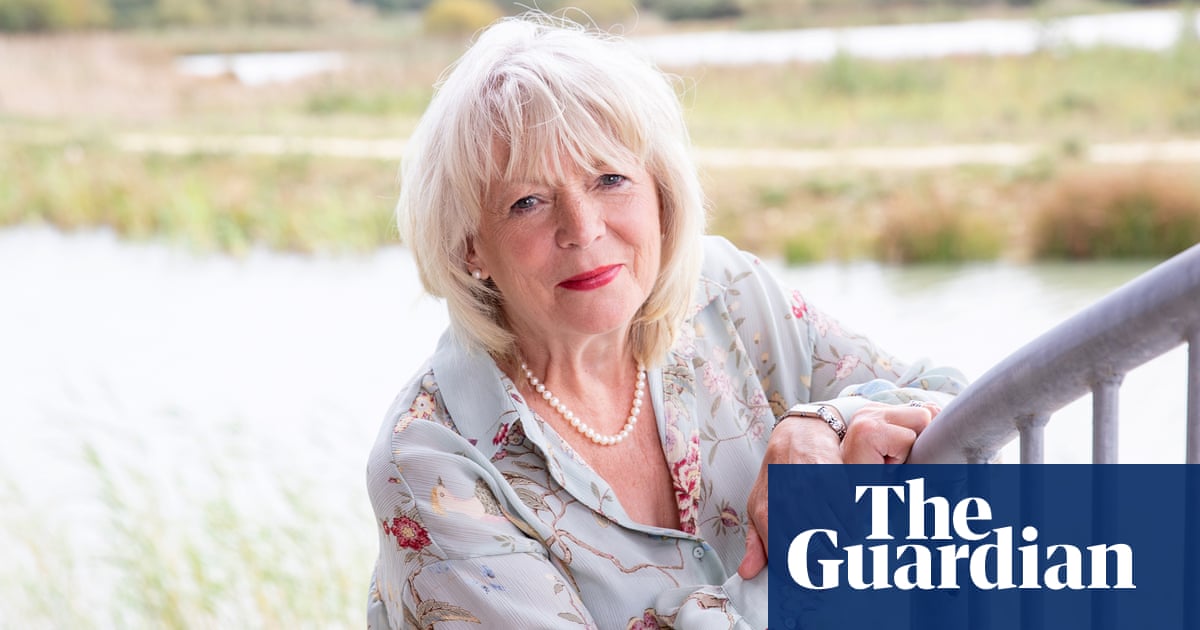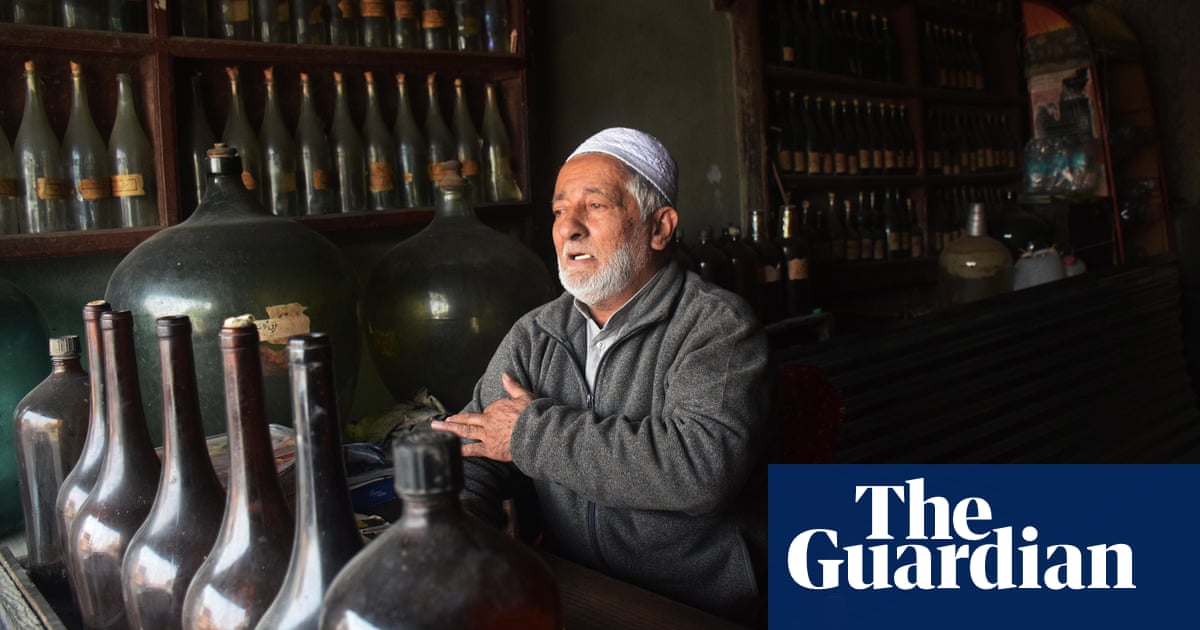
hen Joerg Winger did his military service in West Germany, he was given the job of snooping on Russian troops stationed in the GDR, or East Germany, the authoritarian regime on the other side of the iron curtain. “It was the 80s,” Joerg says. “I was a radio signaller. And one Christmas, I remember the Russians wishing our officers seasons greetings – using their names. So we knew we must have a mole. That was the origin of the story.”
Joerg is talking about his tense, thrilling and superbly wardrobed Deutschland TV series, which returns this month for its third and final outing. He created it with his wife, Anna, who had the idea of telling the story from the perspective of the mole. Enter our long-suffering young protagonist Martin Rauch, who goes undercover in the west and never seems more than five seconds away from being exposed.
Through Martin’s various heart-stopping and near-impossible missions, the trilogy – 83, 86 and now 89 – tells a wider story, chronicling the death throes of a system no one seemed to love, or at least not for very long. East Germany starts to crumble in 83. The regime attempts to become capitalist in order to save communism in 86. And by 89, it’s simply over. “One of the reasons we located the first part in 1983 was the music,” says Anna. “The show tracks the end of something – but the question was where did the end begin? And it felt like, in 1983, the music was that kick-off.”
Period-wise, the music has been as spot-on and evocative as the clothes, from Nena singing her 1983 chart-topper 99 Red Balloons – about a bunch of kids releasing the titular playthings and almost triggering the third world war – to the ubiquitous Adidas Stan Smiths. And as for the haircuts, half the cast look like Blue Monday-era New Order.
Sylvester Groth, who returns as a Stasi officer and Rauch’s estranged father in the concluding series, was already living in West Germany by the time the Berlin Wall fell on 9 November 1989. “Groth was priceless as a source of detail,” says Joerg. The actor had escaped East Germany after being allowed to cross the border five years earlier with his theatre company and deciding never to return. “The night the Wall came down,” says Groth, “I was on the stage in West Germany. I thought, ‘Oh my God – what happens now? Eighteen-million people will come here. How will you handle that?’”
That question – what happens now? – is at the heart of Deutschland 89. Yes, things are ending but in this final part of the trilogy, the fall of the Wall – or the Anti-Fascist Protection Rampart, as it was officially known in the GDR – is only the starting point. “We were looking for the overlooked pieces of cold war history,” says Joerg. “That’s why we decided not to tell the story of how the Wall fell. The under-narrated part of this era is what happened after.”
Speaking from their home in locked-down Berlin, Joerg and Anna explain how they set about filling in those gaps. “We assume that it was simple: the Wall came down, the two sides hugged and unified – and Germany became one country. But the reality is far from that. I had to remind myself of the chaos and the vacuum of power that followed. There’s no police all of a sudden, no structure. It’s as if this country is emptying out and nobody knows what will become of it. The country has to reinvent itself, as do a lot of our characters.”
Anna adds: “We were always writing into the grey areas of history. You know what happened, but there were still some murky questions as to who, what, when, why. Like with Able Archer.” This was a Nato war game, a simulation of escalating conflict leading to a nuclear strike. In 1983, the Soviets thought it was the real thing – and readied their forces. “We still don’t know what happened there, but it was really fun to write Martin into that. From the very beginning, we chose this character as somebody who was ultimately going to be the future of a united Germany, in the sense that he’s East German but has seen the world.”
We first meet Martin Rauch – alias Moritz Stamm, codename Kolibri (meaning hummingbird) – as a naive GDR border guard, living a relatively quiet life with his pregnant girlfriend and sickly mother in the suburbs of socialist East Berlin. During a gripping scene in the breathless new series, Martin takes time to reflect on his six-year journey as a spy. “I was actually a border guard,” he says, in this rare moment of candour. “Then my father showed up and broke my finger, just because I couldn’t play piano. Then my aunt poisoned me and took me to the west. But I did prevent a nuclear war! Then I had to go into hiding, in Angola. Then I just wanted my old life back, a normal life. It was nice but kind of boring. Now they won’t leave me alone. All the secret services keep pestering me.”
Jonas Nay, who plays Martin, removes his face mask after zipping through the empty streets of Berlin to talk to me on Zoom. The actor has brought a bewildered, wide-eyed, boyish humanity to his character who, in the service of his country, has maimed, killed, lied, seduced, backstabbed and even flirted with the Rajneeshpuram cult (which was the subject of the Netflix documentary Wild Wild Country). “Martin is one of the few people who has really seen both sides – and he has a very clear view of them. He has perspective. If you take Martin as a point of view on the cold war, he has a really broad picture. He has to find his own moral compass. That’s what the writers always say.”
Nay is almost the same age as reunified Germany: he celebrated his 30th birthday a month before the 30th Reunification Day last October. I ask him if he has any memories of Germany trying to knit itself back together. “It’s not an issue for people from my generation. But if you look at people my parents’ age, it’s part of how they define people: what their political history in Germany is, whether they grew up under socialism or capitalism. The German people have had to redefine themselves so often.”
Reinvention is a big theme of Deutschland 89. The country has, after all, undergone four regime changes in just over a century, sweeping in a new currency, new borders, new political systems and new flags every time. Nay grew up in Lübeck, West Germany, 5km from the eastern border. When he was initially researching his role, he started to ask a lot of questions. “My parents told me how, on the night the Wall fell, they went out into the streets and everyone was honking and hugging and waving. They said harmony was in the air. They remember all the easterners coming over and going to the first supermarket they came to – Aldi. Within minutes it was empty. They took everything just in case they had to go back.”
Groth had to return to what was Soviet East Germany on an almost daily basis while filming, as his set was in the old headquarters of the Stasi, or secret police. “It was horrible filming in there,” he says. “This bad atmosphere. You knew decisions were made there that were horrible. You can still feel it, because the furniture is still there, the curtains are still there. It’s a horror museum. It took so much for me to say, ‘No – don’t be intimidated by this shit. Play your part and go home.’ It wasn’t easy.”
Cold war memories now seem to loom large for everyone, but when the Wingers first conceived the series, they had no idea how it would be received. “We never expected it to be so pertinent,” says Anna. “When we were first doing 83, I said to Joerg, ‘Will people remember the cold war? Will we have to explain what it is?’ Then Russia invaded Crimea and suddenly everyone was talking about it. You actually start thinking, ‘Wait – is this happening because I’m writing it?’ In a way, the past is a prism to view our current struggles.”
One of the most striking things about the trilogy is how much of what we see seems to be reflected in the present: the paranoia of being monitored by the state; the impingement of personal freedoms; the misinformation bubble; the reinforcement of borders; the questions over what nationalism and patriotism actually mean.
“When the Wall fell,” says Joerg, “there could have been violence. Guards sitting in their watchtowers had been told there were crazy people out there who wanted to destroy the GDR. And these guards were prepared to go out and kill everybody if they were asked to, because of the propaganda. If you hear the same story over and over again, you’ll believe it. I think that’s what we’re facing now.”
Deutschland 89 starts on More4 at 9pm on 26 February. The first two series are available via Walter Presents on All 4.












